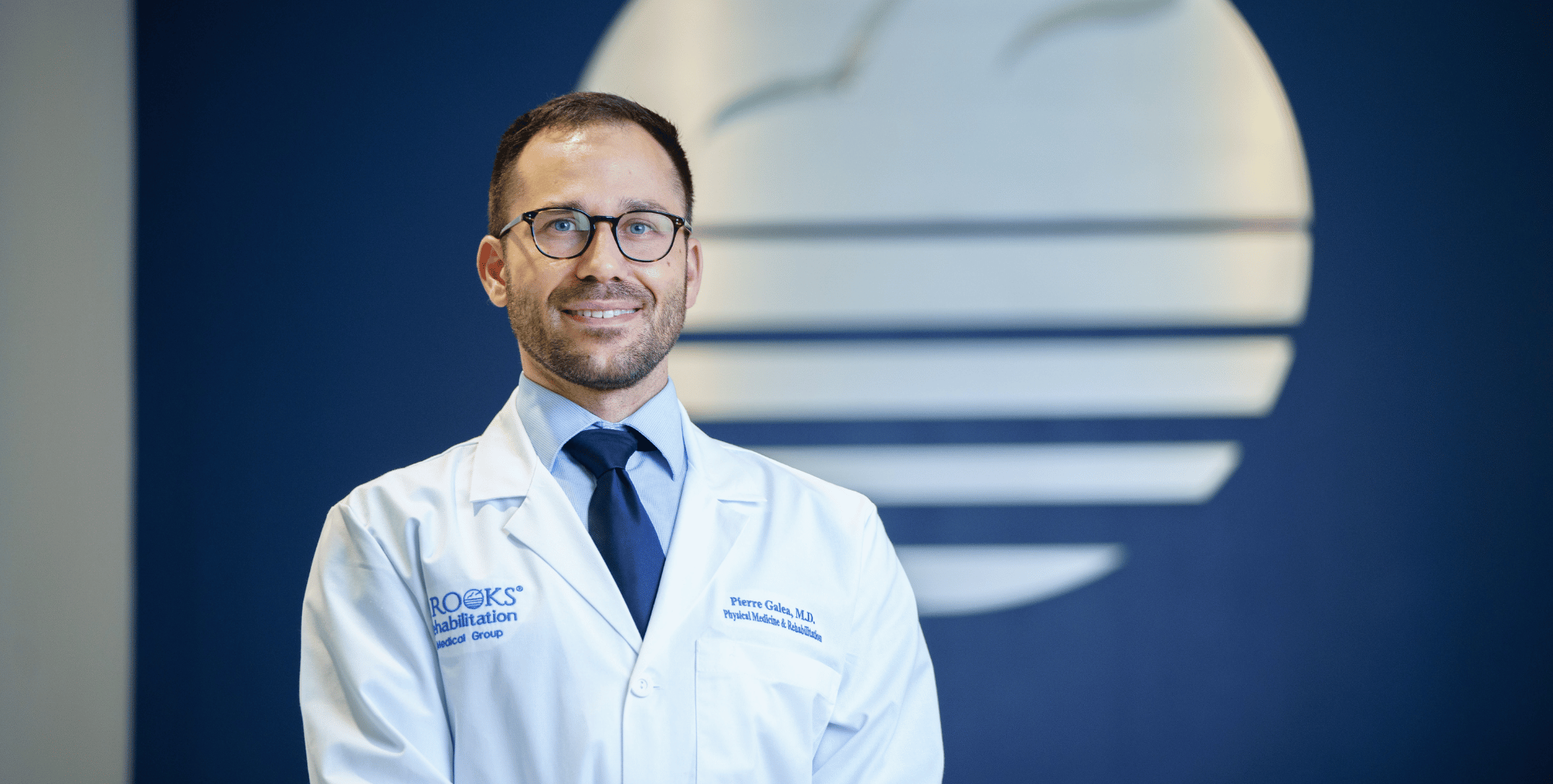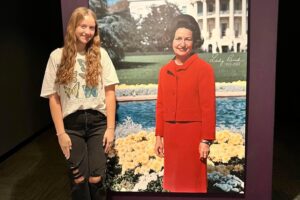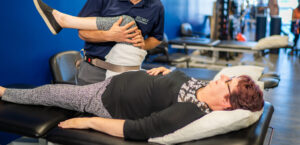Q&A with Pierre Galea, MD

Back to physical health resource hub
Pierre Galea, MD, joined Brooks in October 2021 and currently serves as an attending physiatrist at the Brooks Rehabilitation Hospital – Bartram Campus. He began his career at Brooks with a focus on the stroke and brain injury patient population at our University Campus.
Dr. Galea earned his MD degree from the Larner College of Medicine at the University of Vermont. He completed his Physical Medicine and Rehabilitation (PM&R) residency at the University of Alabama, where he served as the chief resident. Dr. Galea has an undergraduate degree in electrical/computer engineering from the University of Malta and a master’s degree in Information, Networks and Computer Security from the New York Institute of Technology. He is a Fellow of the American Academy of Physical Medicine and Rehabilitation (FAAPMR).
Your original education is in computers and cybersecurity. What first caught your interest there, and then how did you end up a physician?
I was always interested in problem solving in technology and engineering. But, as I worked with computers, I thought, “What is my role, what’s my purpose, and how am I helping people this way?” It was intellectually fulfilling but not completely fulfilling. I wanted to help people directly, and working with computer technology could only help indirectly. So, I went back, got my prerequisites, went to medical school and residency and here I am.
You wanted to help people directly – is that why you choose physiatry?
Yes, absolutely. Physiatry has both the technology component, for example, exoskeletons, or neural networks used in prosthetics, and that human component, where patients really expressed how valuable it was to have a physiatrist in their life and the impact that it had. So, to me, it was both – it’s technology that’s helping human lives.
How did you learn about Brooks?
I was in residency and interviewing at a lot of places and I couldn’t find one where I thought, “Yes, this really is a great place.” I was talking to my attending and they said, “You mentioned having family living close to Florida. Have you considered Brooks?” I came here, I saw the facilities, I met with everyone here. I saw how everything was run, the culture and how the care was beyond anything else I’d seen. That was really the deciding factor.
You were at the University Campus when you first came to brooks. What types of patients did you treat?
I would consider myself more of a generalist, but a lot of the patient population I treated at University Campus consisted of strokes and brain injury. Working with Kenneth Ngo, MD, and Cassandra List, MD, was fantastic. They know exactly what they’re doing, and there was great mentorship from the beginning.
You’re now at the Bartram Campus, which continues to expand the Brooks transplant rehabilitation program. What’s different about transplant rehabilitation?
Transplant rehabilitation is specialized and unique. Things that apply toward a general rehab population may not always apply in a transplant population. They need a certain level of monitoring; they need labs and a certain treatment that is unique and specific. It requires a lot of coordination, not only with the rehab team, but with the transplant team. A great thing about our transplant service led by Parag Shah, MD, is this ongoing communication with the patient’s primary transplant team. We know what the process is, we have clear information on what labs they need, when they need them by, what is concerning and what labs may prompt a more rapid response or a more rapid intervention.
You mentioned culture earlier. What do you see at Brooks?
What I see is that everyone goes above and beyond, every day, with every patient, to ensure the best outcome for the patient. And I see that throughout, not just in one discipline, but in all disciplines. There are always opportunities for growth, but this culture is not one that you commonly see. Everyone is on board; everyone acts as a team. We communicate constantly. We come down to the bottom of the problem and see how we can best assist every patient.



